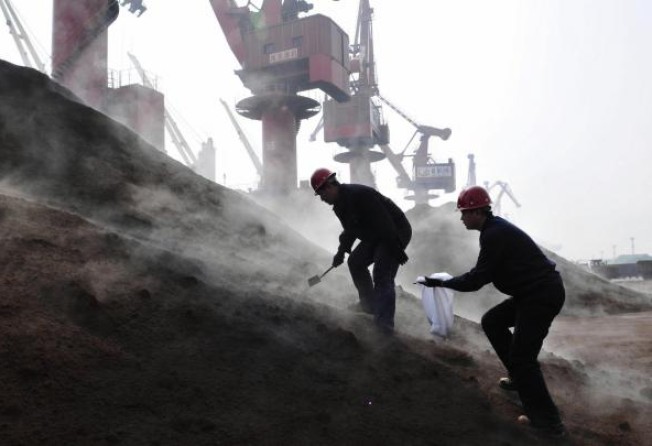
Mainland imports show surprise fall in August
Exports also increase at a subdued pace below forecast in August, widening a trade surplus and pointing to a further weakening economy


The disappointing trade figures, together with data released at the weekend that showed further weakening of industrial production and investment growth, will test policymakers' tolerance of an economic downturn.
Economists expect the government to launch new measures, such as raising rebates on export taxes, to bolster trade, but a rebound in inflation may curb Beijing's desire to ease policies drastically before the Communist Party's 18th congress and leadership transition.
The central government has avoided launching massive stimulus plans during a politically sensitive period even as the economy grew in the past quarter at the slowest pace in three years.
Imports dropped 2.6 per cent last month, against expectations of a 3.5 per cent gain in a Bloomberg poll of economists. Exports rose 2.7 per cent, below an expected 2.9 per cent rise.
The trade surplus widened to US$26.67 billion from US$17.8 billion a year earlier and US$25.1 billion in July.
Exports are expected to stay weak for the rest of the year because of sluggish overseas demand.
"The world economy faces downward pressures, with an increasingly clear impact on China's trade," Commerce Minister Chen Deming said yesterday.
Chen said the State Council would further study policies to stabilise trade growth, including cutting unnecessary fees and increasing imports of hi-tech equipment and daily necessities.
Analysts at Citigroup and Australia and New Zealand Banking expected Beijing to increase tax rebates for exporters in labour-intensive industries. JP Morgan said there was room for the central bank to reduce interest rates or cut the reserve ratios of banks.
The government was unlikely to let the yuan appreciate against the US dollar given the weakness in exports, said Song Yu of Goldman Sachs. However, "significant depreciation is probably also politically difficult", especially before the US presidential elections.
Zhang Zhiwei, the chief China economist with Nomura International (Hong Kong), said "the contraction in imports was unusual".
Excluding Lunar New Year distortions, such a contraction happened only once in the past decade, during the 2008-09 global financial crisis, Zhang said.
Nomura revised its forecast for growth in the mainland's gross domestic product this year to 8.1 per cent from 8.2 per cent. Barclays cut its forecast for this year to 7.5 per cent from 7.9 per cent, and to 7.6 per cent from 8.4 per cent for next year.
Economists said the cooling in imports was caused in part by destocking and falling commodity prices. Inbound shipments might pick up as the country launched more infrastructure projects in the next few months.
Last week, the National Development and Reform Commission approved infrastructure investments estimated at 1 trillion yuan (HK$1.22 trillion).
